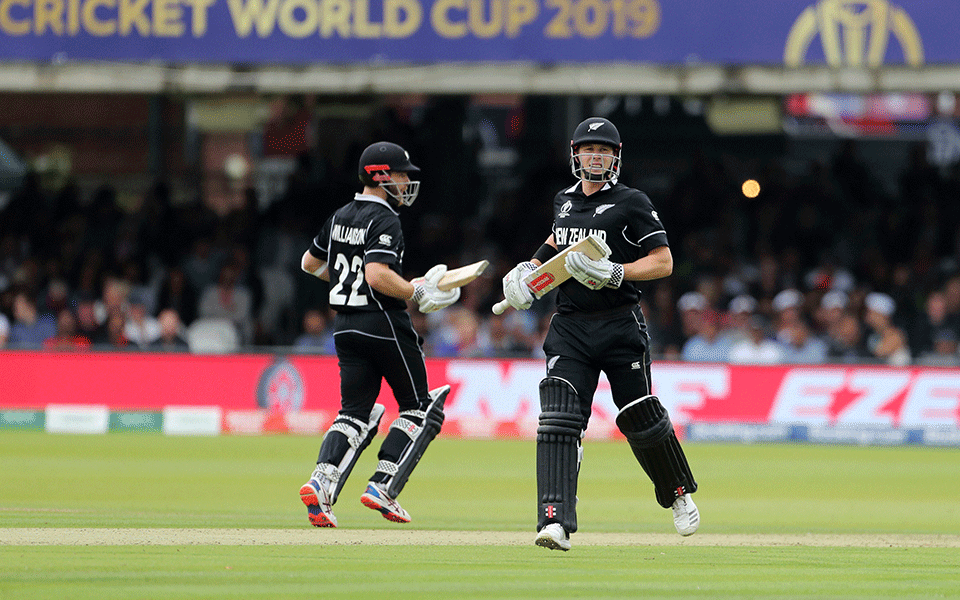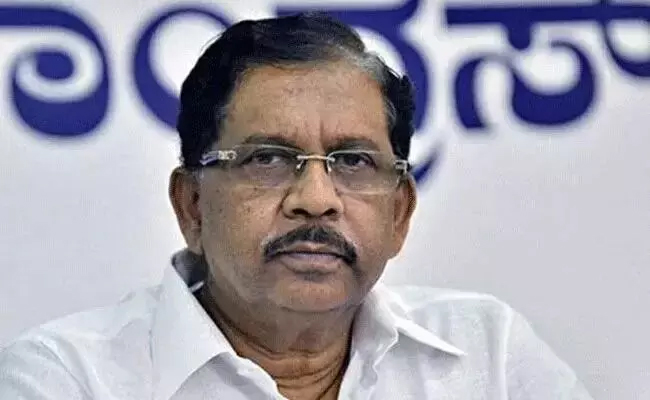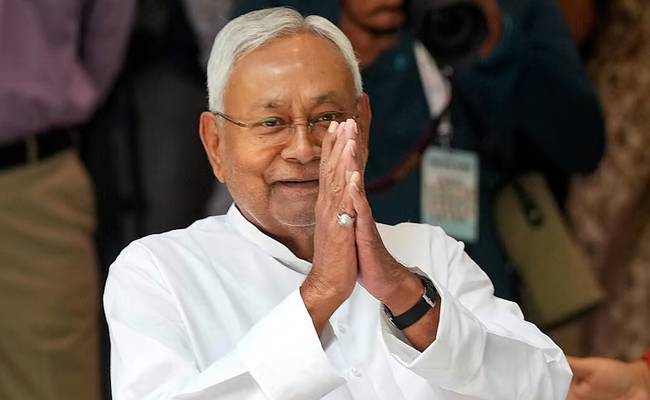London, July 14: New Zealand once again put up a modest batting performance under overcast conditions to post 241 for eight against a quality England pace attack that kept on asking probing questions in the World Cup final here Sunday.
Henry Nicholls (55 off 77 balls) and skipper Kane Williamson (30, 53 balls) added 74 runs for the second wicket after a fabulous first spell from Chris Woakes (3/37 in 9 overs) and Jofra Archer (1/42 in 10 overs) on a helpful Lord's track.
While Woakes had the best figures statistically, it was the tall Liam Plunkett (3/42 in 10 overs), who used the cross-seam variations effectively to stop the Black Caps on their tracks.
They would now be hoping that their pace bowlers use the conditions as well as the England bowlers did in the first half.
Only Tom Latham (47 off 56 balls) contributed in the middle overs in another mediocre effort from the New Zealanders on another big day.
Martin Guptill (19 off 18 balls) had started on a positive note but after surviving a caught behind appeal off Archer, he wasn't lucky the second time when Woakes got one to slightly shape in and he was caught plumb in-front.
Williamson and Nicholls, just like the India game, were trying to preserve their wicket with occasional boundaries. They were steady during their 16.2 over stand without being spectacular.
It was Plunkett, who got the all important wicket of Williamson when the New Zealand skipper tried to play away from his body and the nick was snapped by Buttler.
Plunkett then removed another set batsman Nicholls with a cross seam delivery that had the left-hander playing on while shaping up for a big shot.
After it became 118 for three from a comfortable 103 for one, New Zealand could never effectively force the pace.
The England bowling had variations of every type Archer hurled it full and fast on the blockhole, Plunkett bowled back of the length and Woakes, who used his slower variations in the final overs, made life difficult for the New Zealand batsmen.
Let the Truth be known. If you read VB and like VB, please be a VB Supporter and Help us deliver the Truth to one and all.
Colombo (AP): A US submarine sank an Iranian warship off the coast of Sri Lanka, and Sri Lanka's navy said Wednesday it recovered 87 bodies and rescued 32 people.
The Iranian vessel that was sunk in the Indian Ocean was the Islamic Republic's “prize ship,” US Defence Secretary Pete Hegseth said at a Pentagon news briefing. Hegseth said it was the first sinking of an enemy ship with a torpedo by the US since World War II.
Sri Lanka's Foreign Minister Vijitha Herath told Parliament that its navy received information that the IRIS Dena, with 180 people on board, was in distress and sinking. The island nation sent ships and air force planes on a rescue mission, he said.
Navy spokesman Commander Buddhika Sampath said by the time navy ships reached the location, there was no sign of the ship and “there were only some oil patches and life rafts. We found people floating on the water.”
He said the 32 people rescued were admitted to a hospital in the seaside town of Galle on the Sri Lanka's southern coast. The bodies recovered were being brought to land, he said.
Dr Anil Jasinghe, a top health ministry official, said one of those rescued is in critical condition, seven are receiving emergency treatment and others are being treated for minor injuries.
The IRIS Dena — one of Iran's newest warships — is a Moudge-class frigate that patrols in deep water for the Iranian navy. It is armed with heavy guns, surface-to-air missiles, anti-ship missiles and torpedoes. It also carries one helicopter.
The frigate was the centerpiece of a two-ship international tour in 2023 that included port calls in countries including South Africa and Brazil. It was accompanied by the support ship IRIS Makran, a converted oil tanker.
The US Treasury Department included both ships on a sanctions designation in February 2023 along with eight executives of an Iranian drone manufacturer that supplied the weapons to Russia for use against civilian targets in Ukraine.
At least 17 Iranian naval vessels have been sunk during the ongoing war, said US Adm Brad Cooper, who leads the American military's Central Command.
“We are also sinking the Iranian navy — the entire navy,” he said in a video message.





